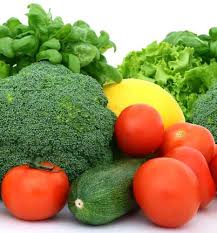Eating Well for Physical and Brain Fitness

As warmer spring weather beckons us to shed our wintery weather gear, thoughts increasingly turn towards regaining a healthier and fitter silhouette. That much sought after goal is becoming increasingly more elusive however, as actual physical fitness levels for Canadians are less than flattering. As a nation, we’re getting fatter at a startling rate and the main offender would appear to be the obesogenic (fat-promoting) environment we live in.
Those were some of the key points that respected scientists Yoni Freedhoff, medical director of the Bariatric Medical Institute based in Ottawa and Dr. Hasan Hutchinson, director-general of the Office of Nutrition Policy and Promotion at Health Canada found consensus on during a recent debate organized by the Canadian Obesity Network. Globe and Mail.
According to Canada’s Food Guide, the type of food you eat is just as important as the amount you eat, whether you’re preparing a meal at home or eating out. Canada’s Food Guide recommends that you:
 Eat at least one dark green and orange vegetable each day.
Eat at least one dark green and orange vegetable each day. Have vegetables and fruit more often than juice.
Have vegetables and fruit more often than juice. Eat at least two Food Guide Servings of fish each week.
Eat at least two Food Guide Servings of fish each week. Satisfy your thirst with water.
Satisfy your thirst with water.
The Food Guide also encourages people to choose foods lower in fat, sugar and salt:
 Choose vegetables and fruit prepared with little or no added fat, sugar or salt.
Choose vegetables and fruit prepared with little or no added fat, sugar or salt. Choose grain products that are lower in fat, sugar and salt.
Choose grain products that are lower in fat, sugar and salt. Select lower fat milk alternatives, such as skim, 1%, or 2%.
Select lower fat milk alternatives, such as skim, 1%, or 2%. Select lean meat and alternatives prepared with little or no added fat or salt.
Select lean meat and alternatives prepared with little or no added fat or salt. Limit foods and beverages high in calories, fat, sugar or salt. Canada Food Guide.
Limit foods and beverages high in calories, fat, sugar or salt. Canada Food Guide.
The Canada Food Guide says that a healthy diet rich in a variety of fruit and vegetables may help reduce the risk of some types of cancer as well as lowering your risk for heart disease, obesity, type 2 diabetes, and osteoporosis, while providing many benefits such as:
 Better overall health
Better overall health Lower risk of disease
Lower risk of disease A healthy body weight
A healthy body weight Feeling and looking better
Feeling and looking better More energy
More energy Stronger muscles and bones
Stronger muscles and bones
Dr. Tiffany Chow, a neurologist and scientist at Baycrest’s Rotman Research Institute, notes that current scientific evidence links brain boosting foods to the consumption of fish that are high in omega-3 fatty acids, such as salmon, mackerel, sardines and bluefin tuna, as they protect against inflammation. “Fish is also a good source of protein instead of red meat, which is laced with the kind of fat that gets you into trouble in the long run in terms of stroke and brain maintenance.” Dr. Chow strongly recommends a Mediterranean-style diet, based on fruits, vegetables, olive oil, legumes, grains and fish. She also recommends smaller and more frequent portions spread throughout the day to regulate glucose levels. Dr. Chow says, you may start out exercising and eating the right type of brain foods, but you’ll benefit other aspects of your body and life, as well. Baycrest.
Stay tuned, as we follow up next week with sleep improvement tips. Thereafter, our weekly features will highlight the benefits of physical exercise, brain training and socializing.
DynamicBrain Inc. is the Canadian Partner of Posit Science Corporation providing brain fitness program, BrainHQ in English and French.






 English
English
 Français
Français


